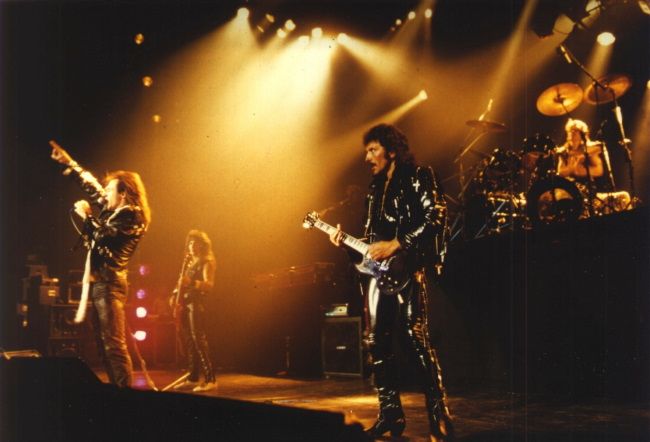For many a Black Sabbath fan, the band ended in spirit, if not in name, when Ozzy Osbourne was fired in 1979. However, plenty of fans took to the Ronnie James Dio fronted version of the band in the early 1980s. But fewer were enamored of the incarnation featuring former Deep Purple singer Ian Gillan and it seems that most fans jumped ship after what was intended to be a Tony Iommi solo album, Seventh Star, was released as a Sabbath effort in 1986.
The following year the Sabs were back with The Eternal Idol. Iommi was the sole remaining member of any line-up prior to 1985 and he had originally hired Ray Gillen to sing but, when that didn't pan out, Tony Martin was brought in as his replacement. But he wasn't just replacing Gillen; he also had to fill the shoes of Ozzy and Dio.
While I am not sure when I first heard The Eternal Idol, I suspect it was sometime in 1988. Much to my surprise, I found that I rather liked the album. This was partly due to a sound that bore some resemblance to the Dio era with that early 80s metal feel. Another reason was that Martin emulated some of Dio's vocal dramatics as opposed to Ozzy's more blunt style. While the album sounds of its time with a metallic sheen to the mix and the drums front and center, Iommi's riffing skills are reenergized here. I suppose another concession to the cock rock era is that his guitar tone isn't as sludgy sounding as it was in days past, but he builds dense walls of guitar that are highly melodic and get the songs moving.
"Nightmare" has a big, fuzzy riff with a vague blues feel to it which is classic Iommi. It gives this sense of falling as the ominous chord fades into the distance. The lyrics speak of an unknown power in the narrator's dreams with Satan and The Reaper making appearances as well. Gillen's only performance to be spared after Martin's arrival was the evil laughter here which heightens the song's horror film dramatics.
The song is a fine example of Iommi blending classic Sabbath with contemporary metal mores.

No comments:
Post a Comment